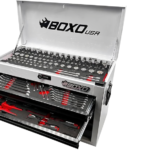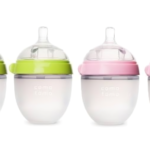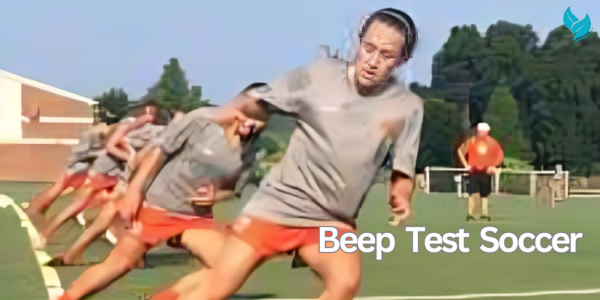The beep test, also known as the Yo-Yo test or the multi-stage fitness test, is an essential fitness assessment tool widely used in various sports, especially in soccer. It measures a player’s aerobic capacity, endurance, and speed—three critical attributes for excelling on the field. Soccer, a game that requires a combination of sprinting, jogging, and walking, demands high fitness levels, and the beep test has become a standard benchmark for evaluating this.
In this article, we’ll delve into the significance of the beep test in soccer, how to prepare for it, and its relevance to improving overall performance on the field.
What is the Beep Test?
The beep test is a running test where players run continuously between two markers placed 20 meters apart. The test is conducted in time with beeps that increase in speed as the levels progress. Players must reach each marker before the next beep, and the test continues until the player can no longer keep up with the beeps. The total levels achieved before stopping are used to gauge the player’s fitness level.
Why is the Beep Test Important for Soccer Players?
The beep test has gained popularity in soccer due to the sport’s demands. Soccer players are often required to move quickly over various distances, sometimes sprinting to chase down a ball, at other times jogging as they reposition themselves. The test measures:
- Endurance: Soccer is a 90-minute game (or longer, including extra time), so players need stamina to keep up with the continuous demands.
- Speed and Agility: While endurance is key, soccer also requires bursts of speed, especially during counter-attacks or defensive moves.
- Recovery Ability: Players must recover quickly from sprints, similar to the stop-and-start nature of the beep test.
By taking the beep test, coaches can better understand a player’s fitness and ability to handle the physical requirements of a soccer match.
How to Prepare for the Beep Test in Soccer
Preparing for the beep test is crucial for any soccer player aiming to improve their fitness. Here are some essential tips to get ready:
Focus on Aerobic Training
Since the beep test measures endurance and cardiovascular health, focus on aerobic exercises like long-distance running, cycling, and swimming. These workouts help improve lung capacity and oxygen delivery to muscles, which is vital for sustaining longer periods of running.
Incorporate Interval Training
Incorporate interval training to mirror the stop-and-start nature of soccer. Short, intense bursts of activity followed by periods of rest will help improve your ability to handle both high-speed sprints and longer, slower runs. Try sprinting for 20 seconds, then jogging for 40 seconds, repeating this for several cycles.
Practice the Beep Test
One of the most effective ways to prepare for the beep test soccer scenario is to practice it directly. Set up two markers 20 meters apart and run according to the beeps. This not only helps improve your performance but also familiarizes you with the mental challenge of the test, allowing you to pace yourself better.
Strength Training
Although the beep test primarily focuses on cardiovascular fitness, strength training can enhance your performance. Stronger legs and a solid core allow you to maintain better form while running and endure the test for a longer period. Focus on exercises such as squats, lunges, and core workouts like planks.
Focus on Recovery
Soccer players need a quick recovery between sprints. Incorporate recovery training, like light jogging, yoga, or dynamic stretching, to improve your body’s ability to bounce back from high-intensity efforts. This will be crucial during the beep test, as the time between beeps decreases with each level.
Benefits of Beep Test for Soccer Players
Soccer players at all levels can benefit significantly from the beep test. Here are some advantages of including it in your training:
Enhanced Endurance
A high score on the beep test soccer signifies excellent endurance, which is critical for maintaining energy levels throughout a game. Players who score well can last longer on the pitch, giving their team an advantage.
Improved Game Speed
Soccer isn’t just about running for extended periods but also about the ability to sprint and recover. The beep test helps players develop that burst of speed needed to win a ball or make a quick pass.
Helps Identify Weaknesses
The beep test provides immediate feedback. Coaches can quickly assess which players need improvement in endurance or speed, allowing for personalized training adjustments. Players who consistently perform well on the beep test are usually the ones who excel in the latter stages of a match.
Mental Toughness
Enduring the beep test requires mental resilience, as the test pushes players to their limits. Completing a beep test successfully builds not only physical stamina but also mental toughness, a quality that’s indispensable in soccer.
Common Mistakes to Avoid During the Beep Test
When performing the beep test, there are several common mistakes that soccer players often make. Avoiding these can help maximize your performance.
Starting Too Fast
It’s tempting to sprint out of the gates, but pacing yourself is key to lasting longer. The early levels are easier, so conserve energy for the later, faster levels.
Poor Preparation
Underestimating the difficulty of the beep test is another common mistake. You need to prepare adequately by training both your aerobic capacity and your speed. If you skip preparation, you’re likely to falter early in the test.
Incorrect Technique
Improper running technique can lead to wasted energy. Focus on maintaining an efficient posture, running in a straight line between markers, and conserving energy whenever possible.

FAQs
1. How many levels are in the beep test?
There are 21 levels, with each level becoming progressively faster.
2. What is a good beep test score for soccer players?
A score of 13-15 levels is excellent for professional players; 10-12 for amateurs.
3. How often should soccer players take the beep test?
Players should take it 2-3 times during the season to track fitness progress.
4. How can I improve my beep test score?
Focus on aerobic training, interval workouts, and regularly practicing the test.
5. Is the beep test used professionally in soccer?
Yes, many professional soccer teams use the beep test to assess player fitness.
Conclusion
The beep test soccer is an excellent tool for measuring and improving a player’s fitness. By focusing on preparation, pacing, and mental toughness, soccer players can achieve higher scores and translate that fitness into better on-field performance. Whether you’re a seasoned player or just starting out, mastering the beep test can be a game-changer in your soccer journey.











